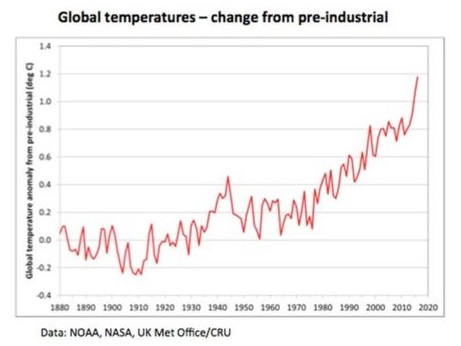Ofgem's Insights into the Decarbonisation of Heat
Ofgem has just released its Insights report on "The Decarbonisation of Heat". It notes that the options for decarbonising heat include:
- improved energy efficiency
- adaptation of natural gas networks through blending in lower carbon gas
- electrification of heating through heat pumps
- further development of heat networks, and
- hydrogen networks.
ICAX welcomes the report and the key message that Ofgem agrees there is a need to focus on heat pumps as the leading low-carbon heating option for buildings.
Improved energy efficiency
Ofgem notes that a key option should be "improved energy efficiency". ICAX agrees that an energy efficiency review should be an integral part of any modern heating system installation.
Blending in lower carbon gas
Ofgem notes the option of blending in lower carbon gas into the gas grid. While this may be an interim option, the radical option is to recognise that any form of combustion of carbon compounds will release more CO2. The longer term objective must be to stop burning carbon compounds and substitute this with heat transfer – which means employing heat pumps instead.
Further development of heat networks
Ofgem would like to see "further development of heat networks". ICAX agrees and notes that the most efficient form of carbon-free heat networks is to share a common ground array from which buildings that require heat can draw heat using their own heat pump; and buildings needing cooling can reject heat to the common ground array (to the benefit of those needing heat): "joined-up heating".
Hydrogen networks
Ofgem echoes the call by the Climate Change Committee to explore the use of hydrogen for heating. ICAX agrees that burning hydrogen for heat would be a carbon-free development. However, it is necessary to look at the source of that hydrogen: if carbon is released in the production of hydrogen this merely shifts the release of CO2 one step back in the production cycle. While Carbon Capture and Storage has been suggested as a long term route to containing the CO2 produced, the risks – and unquantified costs – of this approach are all in the future. Heat pumps are available now.
Further considerations for Ofgem
ICAX believes there are further key points that have not been fully brought out in the Ofgem report concerning:
- thermal energy storage
- heat recycling, and
- air quality.
Thermal Energy Storage
While Ofgem recognises the key part to be played by heat pumps in decarbonising heating, it does not distinguish between air source heat pumps and ground source heat pumps, except to note that the capital cost of air source systems is cheaper than for ground source.
It is true that air source installations are cheaper. However, GSHPs quickly offset the difference because they last longer than ASHPs and are more efficient. The plant has a longer useful life and the element in the ground should be seen as an investment in long term infrastructure with a life expectancy of 100 years.
Furthermore, in terms of energy efficiency, there is no opportunity for an ASHP to benefit from thermal energy storage if heat exchange is with ambient air.
Heat Recycling
GSHPs have the unique potential to deliver interseasonal storage: cooling loads can be met with greater efficiency because heat exchange with cold ground is more efficient than heat exchange with hot air. The by-product of this efficient exchange is heating up the ground – in advance of the heating season when the heat stored in the ground can be recycled back to the building in winter: heat recycling.
Air Quality
Air quality is not mentioned in the Ofgem report. However, poor air quality in cities is now recognised as a key irritant in a number of diseases that affect the old and the young and combustion of carbon fuels in cities contributes directly to poor air quality. The problem of air quality on using combustion of natural gas is the production of NOx gases. Burning hydrogen will emit up to six times as much NOx as burning natural gas. Heat pumps work without combustion and do not emit any form of emissions on site.
Conclusion
Ofgem is correct in pointing out that "electrification of heating through heat pumps" is the right way to go. However, it is not clear that Ofgem has fully realised how right it is.
See the full Ofgem Insight Report.
See the route to Decarbonisation of Heating.
See Ground Source Heating See Ground Source Cooling See Ground Source Energy

